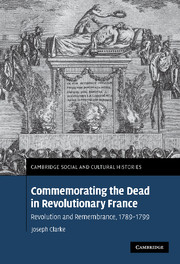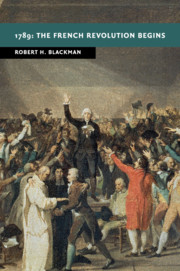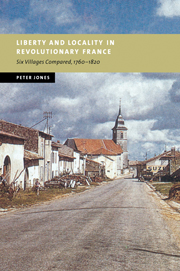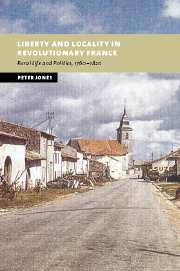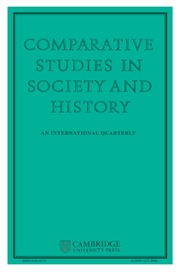Commemorating the Dead in Revolutionary France
From the fall of the Bastille in 1789 to the coming of Napoleon ten years later, the commemoration of the dead was a recurring theme during the French Revolution. Based on extensive research across a wide range of sources, this book is the first comprehensive study of the cultural politics of commemoration in Revolutionary France. It examines what remembrance meant to the people who staged and attended ceremonies, raised monuments, listened to speeches and purchased souvenirs in memory of the Revolution's dead. It explores the political purposes these commemorations served and the conflicts they gave rise to while also examining the cultural traditions they drew upon. Above all, it asks what private ends did the Revolution's rites of memory serve? What consolation did commemoration bring to those the dead left behind, and what conflicts did this relationship between the public and the private dimensions of remembrance give rise to?
- Was the first comprehensive survey of the commemoration and collective memory of the French Revolution
- Adopts an innovative, inter-disciplinary approach
- Will appeal to scholars of the French Revolution, modern European history and the history of memory
Reviews & endorsements
"Joseph Clarke's study is welcome indeed and opens the way for further studies of this major period in human history." -John Dunmore, The Historian
"This is an important book which broadens a seemingly narrow topic--commemoration of the dead during the French Revolution--to make ambitious, perceptive, and largely persuasive arguments about revolutionary political culture, dechristianization, and the divergent aspirations and experience of elites and common people. It is not just well written but eloquent and, in places, moving."
Journal of Modern History, Laura Mason, University of Georgia
Product details
September 2007Hardback
9780521878500
318 pages
229 × 152 × 22 mm
0.646kg
Available
Table of Contents
- Introduction
- 1. Virtue in action
- 2. Piety and patriotism
- 3. The founding fathers of liberty
- 4. Uniting all men
- 5. The apostle and martyr of liberty
- 6. Our brave defenders
- Conclusion
- Bibliography.

